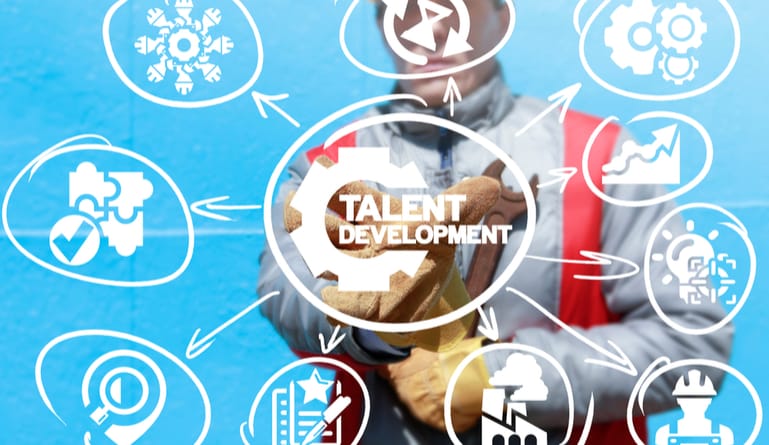Gartner, the world’s leading research and advisory company, defines human capital management (HCM) as “a set of practices related to people resource management.” These practices are most often implemented in the three categories of workforce acquisition, workforce management and workforce optimization. The two main support systems that help to enable human capital management are core administrative support and strategic HCM support.
Applications within core administrative support are:
- Personnel administration
- Benefits administration
- Payroll
- Portal/employee self-service
- Service center
Applications within strategic HCM support are:
- Workforce planning
- Competency management
- Performance management
- Compensation planning and strategy
- Time and expense management
- Learning (education and training)
- Recruitment (hiring and recruitment)
- Onboarding
- Contingent workforce management
- Organization visualization
Workforce analytics and workflow are two other systems of human capital management.
The world of business has made significant technological advances and now relies on technology more than ever to get things done. Despite this, the fact remains that it is still people who drive business forward. Human beings with their ideas, uniqueness, knowledge, experience, skills, imagination and creativity are what keep business moving forward.
There have been rumors that artificially intelligent robots will trigger a “fourth industrial revolution” and replace millions of human workers by 2025 or 2030. True, computers and robots are now doing a lot of jobs that human beings were doing just a few years ago. But that makes them neither superior nor smarter than human beings. Human beings made technology and technology can assist us in doing our jobs better and faster, but they will never replace us.
This is one reason organizations should be encouraged to seek productive human capital among their employees, honor that human capital and find ways to add value to that human capital. This is why human capital management is one of the most important roles in any organization. The cost of people is often the largest item in an organization’s budget, which may explain why a less costly solution is being sought to replace us.
Krista Skidmore, co-founder of FlashPoint Leadership Consulting, said: “People-related costs, including compensation and benefits…are now the single largest budget items for most companies, which means HR has shifted to a more strategic, integrated role in fulfilling the overall organization’s strategy and goals.”
For all the talk about technology and automation, humans are still very critical for business success.
Achieving successful human capital management, however, is possible. Here are three tips for organizations to improve the human capital management of their employees.
1. Employees don’t quit their jobs; they quit their bosses.
Once an HR manager has found the perfect person for the perfect position, they need to consider who that person’s boss or direct manager will be. Having the right manager or the wrong manager for that person can make all the difference in the world. Employees don’t quit their jobs simply because they are offered a better position or higher pay someplace else. They usually quit because they have had it up to here with their manager.
According to the “Father of Employee Retention” Roger Hermen, 75% of people who willingly quit their jobs aren’t really quitting their jobs; they’re quitting their bosses.
Employees can dislike managers or CEOs for several reasons which should legitimately be discussed. Perhaps, the employee doesn’t feel his or her ideas are being taken into consideration or they are given the cold shoulder, ignored by upper management or even colleagues during meetings, or overlooked for a promotion. Maybe there are so many organizational changes that it is difficult to keep up with the core job requirements. It could be that other members of the team aren’t pulling their weight in the work or an employee’s work isn’t being taken seriously. Or, perhaps, managers are asking too much, not asking enough, or allowing the employee to explore their creativity.
Human beings are loyal creatures. If an employee trusts, respects, and likes their manager or CEO, they are more likely to stay at a job for a long period of time even if more lucrative job opportunities come their way. You might consider having employees sit down with their manager for a brief talk before being hired to see how they connect.
Catherine Dulude of AtmanCo offers the following two options:
- Ensure the complementarity of employees and their boss/manager by measuring the complementarity level between two individuals.
- Help your managers develop their management skills.
2. Employees need profiles.
As new people enter, and old people exit, it can be hard to keep track of who’s who in an organization especially in one that’s growing rapidly and constantly changing. An HR manager’s job is made a little easier when they can connect a name to a face.
Individual employee tools are quite helpful when getting to know your employees. Managers can gather and store information about each of their employees which helps to boost knowledge and comradery among employers and employees alike.
Creating employee profiles, especially if employees are able to update their information themselves, allows you to capture and retain important data such as education, professional and personal skills, work history, hobbies and much more. When it comes time to sit down with employees and review their performance or even if you stop for a quick chat in the office, you will have more details with which to engage with them on.
There are several platforms that make setting up employee profiles easy including TalentQuest and HotSchedules. Take time to research and find out which one will work best for your organization.
3. Employees do best when they’re learning.
According to Mitrefinch, “Education and training are of the utmost importance to your organization.” It may be impossible to get employees into a physical class to learn a new program or task. But you can provide training materials online for them to study on their own time and be able to expand their skill set and knowledge base.
It’s easy for employees to become complacent in their roles when they’re only expected to do the same thing every day and there’s no challenge for them to learn something new.




